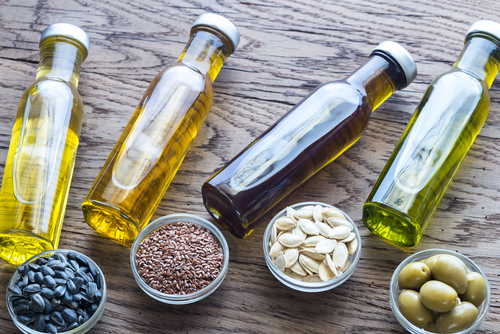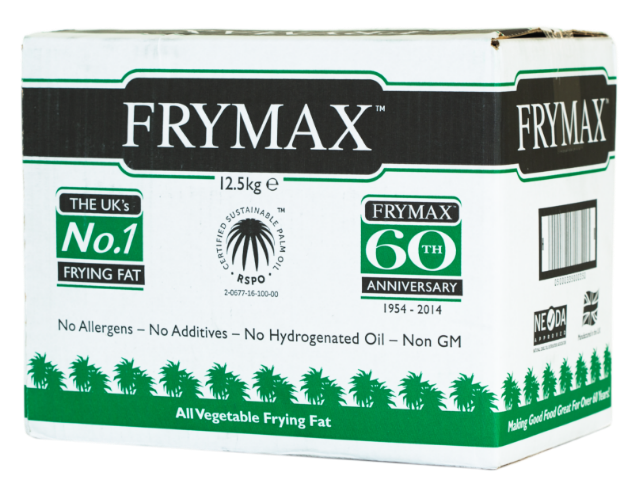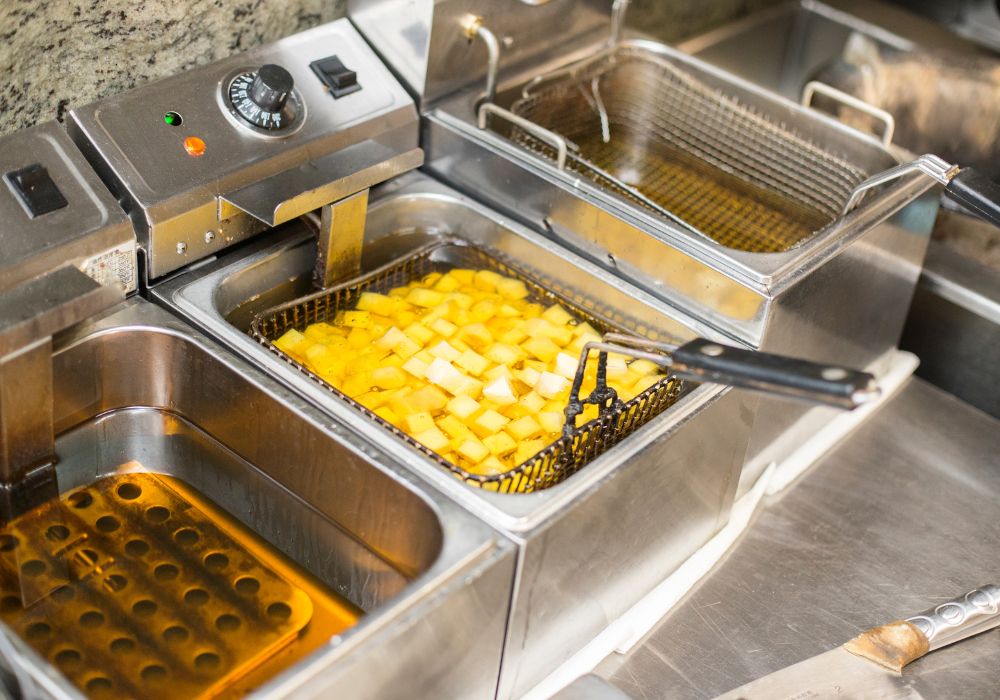Vegetable oil is one of the oldest known man-made ingredients used in cooking. Humans have been making vegetable oil – and, presumably, frying food in it – for almost 8000 years. Vegetable oils are extracted from plants, often from the seeds, and the likes of rapeseed oil, olive oil and palm oil are all popularly used varieties of vegetable oils.
In this article, we’ll be looking into how vegetable oil is made. Thousands of years ago it may have been as simple as squashing a few olives, but now vegetable oil production takes place on a massive scale, with a range of different plants being used.

The basics of vegetable oil production
At its heart, making vegetable oil is as simple as cracking open a few nuts and extracting the tasty oil within. How that extraction is actually achieved, on the other hand, is less simple. In centuries gone by, olive oil was the most popular vegetable, likely due to the fact that it’s so easy to extract. Unlike seeds and nuts that require a refinement process to extract the oil, olives just require pressing to give up their goods.
Outside of olive oil, early vegetable oil extraction techniques likely obtained around 10% of the oil available in a plant. Today’s extraction techniques can extract up to 98% of the potential oil – a far more efficient process. But what changed over all these years to increase the performance of our vegetable oil extraction by such a great degree?
Essentially, the vegetable oil production process can be broken down into the following stages: cleaning, pressing, solvent extraction, refining and packaging. Below, we have outlined what these stages entail.

Cleaning
Seeds and nuts need to be cleaned and stripped of their extraneous material before being refined into oil. Once they’ve been run over magnets to remove any traces of metal, they will be deskinned and then ground up by rollers or hammer mills to increase the surface area that will be pressed. Once crushed up, the nuts and seeds are heated to help facilitate the extraction of the oil.
Pressing
Once prepared, the process of pressing can take place. The heat-treated nut/seed meal is fed into a press that steadily increases its pressure. The oil is pressed out from the meal and falls through slots in the press. With this method, we can extract some of the oil from the plants, but for the most efficient process, further extraction with solvents is necessary.
Solvent extraction
Most oil seeds will be pressed and solvent-treated to ensure that the largest amount of oil possible is being extracted. The solvent treatment involves taking the pressed ‘oil cake’ and adding a solvent to dissolve the oil. The solvent is then distilled out, leaving the oil ready to be refined.
Refining
Once all traces of any solvents are removed, the oil is refined to remove natural colours, odours and bitterness. The oil is heated to 85ºC and combined with an alkaline substance in the first part of the refinement process.
Degumming then occurs, where the oil is treated with water or acid. Any gums in the oil will precipitate and any dregs can be removed with centrifugal treatment. Once degummed, the oil will be bleached through a system of filtration that can absorb pigmented material from the oil. Some vegetable oils – such as those in salad dressings – need to be served chilled, in which case the oil is ‘winterised’ by being rapidly chilled to a low temperature. A deodorisation process also takes place, in which steam is passed through the oil and, often, a small amount of citric acid is added to remove the presence of any trace metals that could shorten the oil’s shelf life.
Packaging
Once fully processed, the oil is ready to be packaged. It is poured into clean containers for domestic or commercial use. Once packaged, the oil is shipped out to suppliers such as Frymax and is ready to be sold to frying businesses around the country.
Frymax’s sustainable palm oil is a fantastic vegetable oil for anybody looking into deep frying. To see the results of our exceedingly high-quality oil on your food business, get in touch with our friendly team today.
Become a Frymax member today to gain access to exclusive content, expert frying advice and the chance to enter our fantastic competitions.






